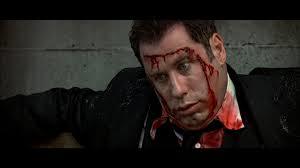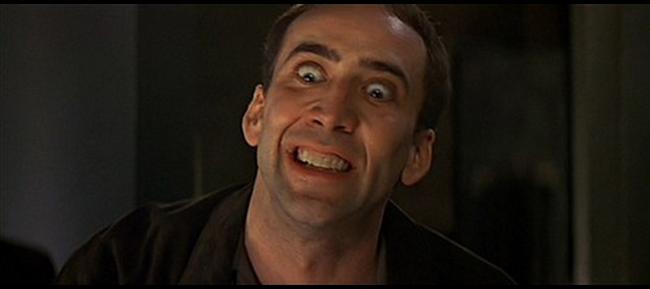- July 13, 2025
-
-
Loading

Loading

I’ve noticed a lot of people citing Rotten Tomatoes to talk about a given film’s quality (or lack thereof).
Fans do this, and actors and directors do, too, when their films don’t get the scores they think they deserve. Some people have gone as far to accuse it of being a useless tool. Which it might be, for you! But I think many people’s understanding of the site is incorrect, and this feeds a lot of the furor surrounding it. So to clear up any confusion, let’s talk about what Rotten Tomatoes does and does not mean.
The site’s Tomatometer is a roundup of opinions from critics (both from mainstream media and from independent sites). Each individual critic gives the film either a positive or negative review. The percentage you see next to a film’s name is the percentage of critics that gave the film a positive review, whether that’s a 10/10 or a 7/10.
A film that holds a 98% Tomatometer score isn’t necessarily “better” than one that holds a 70% score, then. In fact, what it likely means is the 98% movie is more agreeable to a wide audience. It probably is well-made, but takes fewer risks, while the 70% movie may be off-putting or confusing to some viewers. Of course, a film can be both made for a wide audience and be excellent: Disney Pixar’s “Inside Out” is at 98%, as is action powerhouse “Mad Max: Fury Road.”
Another thing to note is the number of reviews a movie has. Popular movies like the “Star Wars” franchise can get close to 400 reviews from critics (“Star Wars: The Last Jedi” holds a 91% rating from 393 reviews), while a smaller movie like “The Sisters Brothers,” the new western starring Joaquin Phoenix, John C. Reilly, Jake Gyllenhaal and Riz Ahmed, may only be reviewed by critics who enjoy the indie scene — it’s currently at 82% after 57 reviews. The more reviews a movie has, the more it can be trusted.
And again, all this is measuring is “How many people found this enjoyable?” If you’re looking for a way to judge which films are truly “better” than others, try Metacritic, which averages review scores out instead of listing them as positive or negative.
But taste is subjective, and there are always going to be films that speak to you and not other people. Heck, the first movie on this week’s recommendations holds a 92% from RT and an 82% on Metacritic, yet I don’t hear many people hailing it as a classic (besides me). Be true to yourself and like what you like, no matter what others say. My advice, if you’re looking for stuff to watch: Find a handful of reviewers you trust and listen to them.
Like the one you’re reading right now.
Let’s get to the good stuff!
Netflix, rated R, 138 minutes
I just realized I haven’t talked about my admiration of Nic Cage much in Binge Blog, and I felt the need to correct that immediately. I believe Nic Cage is one of the finest working actors in Hollywood — sometimes. Not just in things like “Leaving Las Vegas” and “Raising Arizona” and “Adaptation” and other prestige movies, but the crappy ones, too. The ones he’s become known for recently. The ones where his eyes bug out and and his face contorts and his body writes like he’s being hit with the Cruciatus Curse in the “Harry Potter” series.
He was the only reason the 2006 remake of “The Wicker Man” is “so bad it’s good” instead of just plan horrid. He’s the reason current cult hit and future Binge Blog recommendation “Mandy” is so dang satisfying — well, him and director Panos Cosmatos’ deranged stylistic choices. And he’s half of the reason “Face/Off” was the best, most insane action movie of its decade.
Truly, props go out to whoever thought of the plot of this movie. Imagine if you were a movie executive, and someone gave you the following pitch: “Hey, what if we had Nic Cage play a lunatic terrorist named Castor Troy and John Travolta play a straight-laced cop named Sean Archer, and then, for reasons that don’t matter, we have them undergo surgery so Cage’s character looks like Travolta’s and vice versa?”
Would you greenlight that script? I would in a HEARTBEAT. You should know by now that I love when movies get as ridiculous as possible and push the limits of genre conventions. This might be the best example (so far) of my palate, in that regard.
Again, the details don’t matter, so here’s some other stuff that happens:
- Nic Cage, as the terrorist, dresses like a priest and dances to Handel’s “Messiah” while feeling up members of the choir singing it. This is never explained or mentioned again.
- Nic Cage, still as the terrorist, utters this phrase to an undercover agent: “If I let you suck my tongue, would you be grateful?”
- During the same scene, to the same agent, Cage also says: “I could eat a peach for hours.” Do with that what you will.
- John Travolta, as the cop, shows affection with his family by running his hand down the middle of their faces, almost like he’s face-palming them. He does this multiple times.
- John Travolta, as the terrorist, makes suggestive comments to the cop’s daughter.
- This movie features a plane fight, a boat fight, a prison break, a church fight, a house of mirrors-type shootout and a death via speargun.
- The aforementioned prison break is out of a prison that forces inmates to wear gravity boots, like it’s in outer space. But it’s not in outer space. So, yeah. Don’t know.
- Nic Cage, as the cop but pretending to be the terrorist, makes jokes about the cop’s own dead son, then laughs hysterically about it, because he's on tons of drugs.
- John Travolta makes this face:

- Nic Cage makes this face:

Pretty good movie.
Netflix, TV-14, six episodes, 23 minutes each
Justin Willman is funny. Justin Willman is a talented magician. Justin Willman is kind.
Put these three elements together, and by gosh, you get an entertaining television show.
I’ve loved magic for a long time. Anything that forces suspension of disbelief, really, but especially magic. I used to watch David Blaine specials on cable. I watched Criss Angel videos online. I stayed up to watch “Penn and Teller: Bullshit!” on Showtime when my parents went to sleep. My (much) older cousin even used to do magic, or “magish,” as he would say.

I still love it. The most common critique of magic I hear is “Well, obviously magic isn’t real, there’s some sort of trick behind it!” And uh… no duh? It’s the talent in the sleight-of-hand that I admire. It’s the showmanship. It’s the ability to tell stories and speak messages through visual mediums that leave audience members’ minds blown in more ways than one.
Willman has all of these skills. In “Magic for Humans,” unlike some magicians, he uses his powers for good, with the end goal being to give someone an experience they’ll never forget. The jokes he tells with his comedy are always in good spirits. Each episode explores a certain concept or thing that Willman wants to learn more about: Self-control, self-expression, technology, invisibility, guilt and love. As Willman learns, so do the people teaching him. There are also random bits thrown between segments to keep things interesting. For a 23-minute show, it’s amazing how much content is able to fit.
It’s good content, too. Magic doesn’t always translate well to television, but the tricks here are incredibly well done. Most are new to me, and even the ones I’ve seen other magicians do are given a fresh spin here. I have no earthly idea how he pulls some of this stuff off, and frankly I don’t want to know. That’s part of the experience.
A moment spent getting lost in the trick, a moment spent believing just a little, can be the perfect remedy to reality.
See you next week!